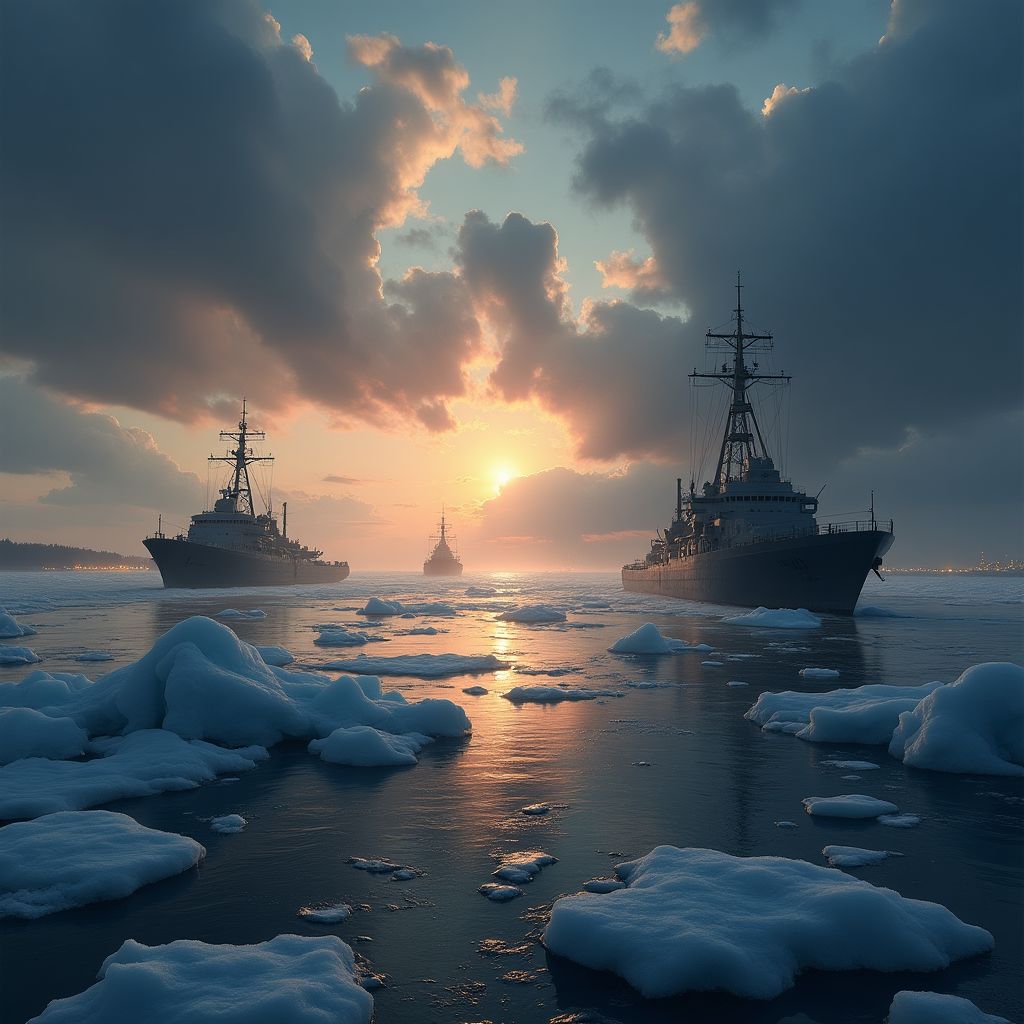Amidst the tranquil volcanic landscapes of New Zealand, geopolitical analyst Peter Zeihan takes us on a speculative journey into the unnerving maritime crossroads of our era. As you picture the emerald pools, super stinky yet mesmerizing—the stage is set for a narrative that could unravel the very fabric of globalization. The Baltic Sea is not just a body of water but a potential theater for clashes and opportunities that redefine international trade as we know it.
The Nordic Alliance: A Quiet Murmur before the Storm
Imagine December 17th and 18th, representatives from Nordic Nations and their cohorts from Poland and Britain huddle under the cold Baltic winds. Countries like Norway, Sweden, Finland, Denmark, alongside the Baltic trio of Estonia, Latvia, and Lithuania are plotting their next move. Empowered by a shared resolve to disrupt Russia's shadow fleet—those uncharted waters of intrigue and evasion—these nations dare to challenge. Their mission? To scrutinize and presumably penalize the vessels that leave the St. Petersburg port without decent insurance or environmental compliance.
Here lies the play of the elements; a symphony where the Russians are danced in retaliation to Western embargoes, generating their crude mystically through the murmur of aged tankers and ambiguous promises. Thanks to these shadowy transactions, the scruffy tankers might just slither past regulations, raising questions about whether anyone—be it Russia, China, or India—has ever legitimately backed these secretive skippers legally and financially.
A Possible New Dawn: Enforcement and the Shadow Fleet
Hope might just lie in the hands of the Nordic enforcers. Will they seize these ships? Board them like modern-day pirates? Or endow them with a dire warning that might mean more than a slap on the hull? This scenario ventures us into the "what-ifs" of naval regulation—an uncharted sea that can encompass everything from the legitimacy of ship registries to the very notion of maritime freedom.
The vast oceans have long been a fortress of global trade, a testament to America's War World II legacy, serenaded by the freedom of the seas. A breezy flutter of ships, with or without insurance, could sail unfettered by complicated regulations. Alas, the Russian shadow fleet tantalizingly dares to test everything we have come to rely on.
Is this the Shipwreck of Globalization?
If the Nordic nations dare to defy the odds and halt these ships, a titanic shift could plummet us toward a new era of maritime lawlessness—one where just about anyone could commandeer a ship without repercussions. Such is the recipe to untangle the tapestry of globalization weaved intricately by the good ole U.S.A.
Not that America would gleefully reclaim its naval post. In fact, it musters little motivation if not compensated handsomely. The land of stars and stripes may not bat an eye, choosing instead to retreat into its continental confines. As the brewing oceanic ruckus reaches a crescendo, regional navies must then emerge, likely failing to fill the void.
The Fallout: A World Afloat in Chaos
Picture the rustbuckled reality of container ships—the mobile stockrooms of phones, computers, and everything else we deem necessary for modern life. If a blockade curtails these goods, would America crumble without imported conveniences? Perhaps, 'til these engines of prosperity are bolstered by homegrown ingenuity.
On the other hand, some countries might not be as lucky. East Asia, for example, relies profoundly on imports to fuel its economy and sometimes merely to sustain life. A ship blockade here would not merely be inconvenient but catastrophic—plummeting China into industrial devastation, if not outright famine, triggering ripple effects we've barely begun to foresee.
The Looming Divide: The World Redesigns Its Maritime Fate
The seas shall stage the next grand opera for dominance. Regional alliances would rise, uniting maritime principles or quelling local mayhem. Places like the Western Hemisphere and Scandinavia could emerge as paragons of harmony under mutual accords, while the enigmatic waters of the Mediterranean flirt dangerously with dissonance.
Face the dilemma; could Sweden, Finland, or Poland dismiss a passing ship as suspicious? A simple glance could lead to unprecedented conflict—an unfurling of sail that blurs the border between policing and piracy. While these possible tensions unsettle our imaginations, they also offer an exquisite glimpse into emerging possibilities.
A Sea Change Awaits: Embrace the Uncertain Tides
The world's maritime future, much like the tempestuous weather in which Peter Zeihan shares this insight, is where opportunity and peril capsize headlong. Whether this behemoth upheaval holds vigor or vanity, time and solidarity are of the essence.
In the comments below, what do you think about this grand scheme unfolding in the Baltic? Is it time for a sea change in global maritime policy? And could we, as residents of the digital shores, stand united and vigilant in facilitating such a dialogue? We invite you to become part of the iNthacity community, apply to become permanent residents then citizens of "Shining City on the Web," and like, share, participate in the debate and comment. Sail forth, my friends, as we continue to plumb the depths of possibility!
Wait! There's more...check out our fascinating short story that continues the journey: The Ghost Fleet of St. Petersburg
Disclaimer: This article may contain affiliate links. If you click on these links and make a purchase, we may receive a commission at no additional cost to you. Our recommendations and reviews are always independent and objective, aiming to provide you with the best information and resources.
Get Exclusive Stories, Photos, Art & Offers - Subscribe Today!


























Post Comment
You must be logged in to post a comment.